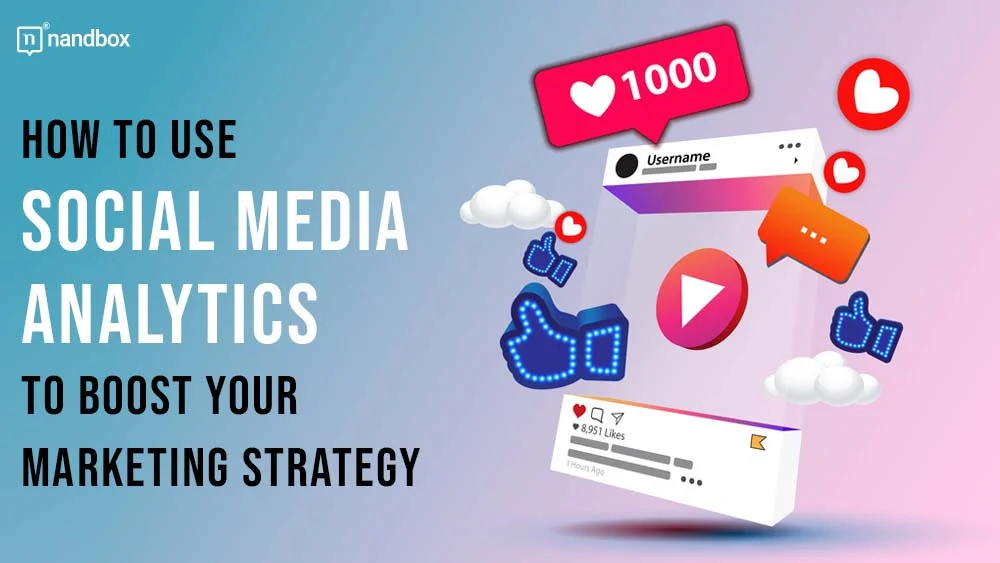In today’s digital age, social media has become a crucial platform for businesses to reach and engage with their audience. With billions of users across various social media platforms, the potential for marketing is immense. However, to truly leverage social media for business growth, it is essential to understand and utilize social media analytics. Social media analytics involves tracking, measuring, and analyzing data from social media channels to inform and improve marketing strategies. This article explores how to use social media analytics to boost your marketing strategy effectively.
Understanding social media analytics can provide valuable insights into your audience’s behavior, preferences, and interactions with your content. By leveraging these insights, businesses can make data-driven decisions that enhance their marketing efforts, increase engagement, and drive conversions. Let’s delve into the key ways social media analytics can be used to optimize your marketing strategy.
Understanding Your Audience:
Demographic Insights:
“One of the primary benefits of social media analytics is gaining a deeper understanding of your audience. Analytics tools can provide detailed demographic information, such as age, gender, location, and interests, about your followers. This data helps you identify who your audience is and tailor your content to meet their preferences and needs.” Jeff Romero, CEO of Octiv Digital
Behavioral Insights:
“Social media analytics can reveal insights into your audience’s behavior. You can track which types of content receive the most engagement, what time of day your followers are most active, and which platforms they prefer. This information allows you to optimize your posting schedule and content strategy to maximize reach and engagement. By aligning your content with your audience’s preferences, you can build stronger connections and foster brand loyalty.” Says Jake Russell, Founder at Mercatus
Measuring Content Performance:
Key Metrics to Track:
Social media analytics enables you to measure the performance of your content accurately. By tracking metrics such as:
- Likes
- Shares
- Comments
- Clicks
you can evaluate which posts resonate with your audience and which do not. This information is crucial for understanding what type of content works best and refining your content strategy accordingly.
Identifying Trends and Patterns:
“Analytics can help you identify trends and patterns in content performance over time. By analyzing historical data, you can determine which topics, formats, and posting times consistently perform well. This insight allows you to replicate successful strategies and avoid those that do not yield results. Measuring content performance through social media analytics is essential for continuous improvement and maximizing the impact of your marketing efforts.” Benjamin Vitaris, from CryptoRated
Optimizing Ad Campaigns:
Assessing Ad Performance:
Social media platforms offer robust advertising options that can be highly effective when used strategically. Social media analytics plays a critical role in optimizing ad campaigns by providing insights into ad performance and audience behavior. You can track metrics such as:
- Click-through rates (CTR)
- Conversion rates
- Cost per acquisition (CPA)
to assess the effectiveness of your ads. This data helps you determine which ads are driving results and which need adjustment.
Conducting A/B Testing:
“Analytics also allows you to conduct A/B testing, where you can compare different versions of an ad to see which performs better. By experimenting with various ad elements, such as headlines, images, and calls to action, you can identify the most effective combinations. Additionally, it provides insights into audience targeting, enabling you to refine your ad targeting based on demographics, interests, and behaviors. Optimizing ad campaigns with analytics ensures that your advertising budget is used efficiently and effectively.” Says Cary Subel CEO of SafeSleeve
Enhancing Customer Engagement:
Monitoring Engagement Metrics:
Customer engagement is a key indicator of social media success, and analytics can help you enhance this aspect of your marketing strategy. By monitoring engagement metrics, such as:
- Comments
- Shares
- Mentions
you can gauge how well your audience is interacting with your content. High engagement levels indicate that your content is resonating with your audience and fostering meaningful connections.
Understanding Sentiment:
“Social media analytics can help you understand the sentiment behind the interactions. Sentiment analysis tools analyze the tone of comments and mentions to determine whether they are positive, negative, or neutral. This insight allows you to address any issues or concerns promptly and maintain a positive brand image. Enhancing customer engagement through social media analytics not only strengthens your relationship with your audience but also builds trust and loyalty.” Andy Fryer, Co-Founder of Easy Signs
Identifying Influencers and Partnerships:
Finding the Right Influencers:
“Influencer marketing has become a popular strategy for reaching new audiences and building credibility. Social media analytics can help you identify potential influencers and partners who align with your brand values and audience. By analyzing engagement metrics and audience demographics, you can find individuals or organizations that have a strong influence within your target market.” Robert Bolder, Founder of VPS Server
Evaluating Influencer Effectiveness:
“Analytics tools can also help you evaluate the effectiveness of influencer partnerships. By tracking metrics such as engagement rates, follower growth, and conversion rates, you can assess the return on investment (ROI) of your influencer campaigns. This data allows you to make informed decisions about which influencers to work with and how to structure future partnerships. Identifying influencers and partnerships through social media analytics ensures that your collaborations are strategic and yield measurable results.” Says Mark Woodbury, Managing Director at Raincatcher
Conclusion:
Social media analytics is a powerful tool for boosting your marketing strategy. By understanding your audience, measuring content performance, optimizing ad campaigns, enhancing customer engagement, and identifying influencers and partnerships, you can make data-driven decisions that drive success.




